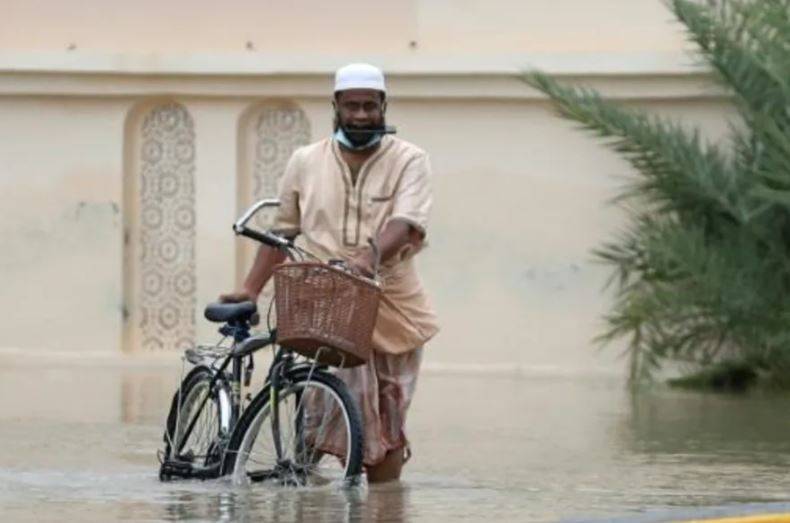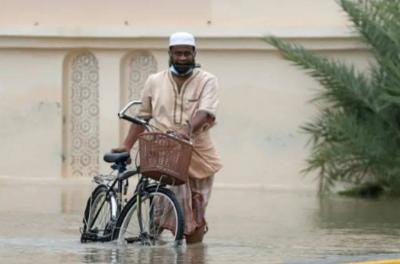At least nine people died in Oman and Iran on Sunday due to the tropical cyclone "Shaheen," which struck parts of their coasts, according to authorities from both countries. The "National Committee for Emergency Management" in Oman reported that rescue teams retrieved "two individuals from the rubble, both deceased" in Muscat Governorate. This announcement followed the report of a child who was lost "in one of the water bodies formed by the tropical cyclone."
Flights were suspended, and schools were closed as the cyclone hit, with wind speeds reaching 120 kilometers per hour along the country's northern coast, according to Oman News Agency. Some flights to and from Muscat International Airport were suspended due to the cyclone, following a tweet from Oman Airports "to avoid any risks that may arise from the direct impact" of the weather conditions. Omani authorities announced a public holiday for Sunday and Monday. The "National Committee for Emergency Management" downgraded "Shaheen" to a tropical storm.
The streets of the capital, Muscat, were nearly empty as few vehicles attempted to navigate through flooded areas. The Iranian News Council Agency reported that six people died in the port city of Chabahar in the southeastern province of Sistan and Baluchestan. provincial governor Hussein Modarres Khiyabani told the Islamic Republic News Agency (IRNA) that "infrastructure, including electrical facilities and roads, was damaged." He added that the center of the storm was located 220 kilometers off the province's coast.
Meanwhile, authorities in the United Arab Emirates announced they were on "high alert" regarding the tropical situation, which they indicated might affect some of its eastern coastal areas.
The Gulf region periodically experiences storms that claim lives. Northern Oman faced heavy rains, hail, and strong winds in July. The cyclone "Mekunu," which struck Yemen's Socotra Island and southwestern Oman, resulted in 11 fatalities in 2018.
With a population of nearly 4.6 million, Oman reopened its borders to foreign tourists last month after a lockdown to contain the spread of COVID-19. The Gulf state, known for its rich heritage, beautiful coasts, and landscapes, has suffered severely from falling global oil prices since 2014 and the economic repercussions of COVID-19. The country had relied on tourism to support its struggling economy, but the collapse of international leisure travel has thwarted its plans.
The United Arab Emirates is preparing for the potential impact of cyclone "Shaheen," urging residents to avoid beaches and low-lying areas. The "National Center of Meteorology and Seismology" forecasted that some areas on the country’s eastern coast could be affected between Sunday and Tuesday. The "National Authority for Emergency, Crisis and Disaster Management" confirmed in a press briefing on Saturday that "the concerned authorities are on high alert and ready to deal with the incoming tropical situation."
On Sunday, "Abu Dhabi Media Office" reported that authorities urged businesses in the city of Al Ain, adjacent to Oman, to work remotely until Tuesday, while children would study remotely on Monday and Tuesday.




